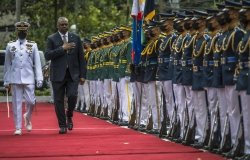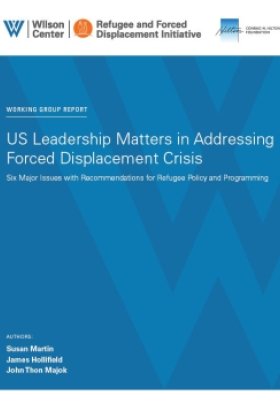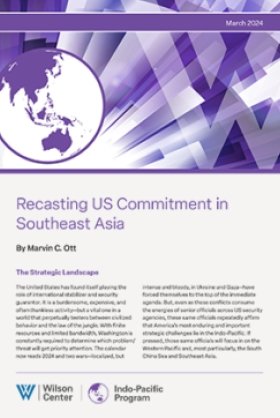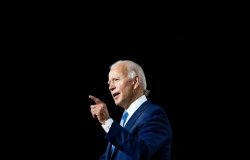The Month in U.S.-China Relations 中美关系月报 (October 2015)
The glow from September’s Obama-Xi summit faded as the USS Lassen made its way through the South China Sea on a Freedom of Navigation (FON) patrol last month. Just as the fifth plenary session of the 18th Communist Party Central Committee kicked off in Beijing, the guided missile destroyer sailed within 12 nautical miles of artificial islands built by China. Beijing warned the U.S. that if it continued to “create tensions in the region,” China might “increase and strengthen the building up of our relevant abilities.” General Secretary Xi stated in September that “China does not intend to pursue militarization” in the South China Sea, but China’s netizens are calling for a military response to the American challenge.
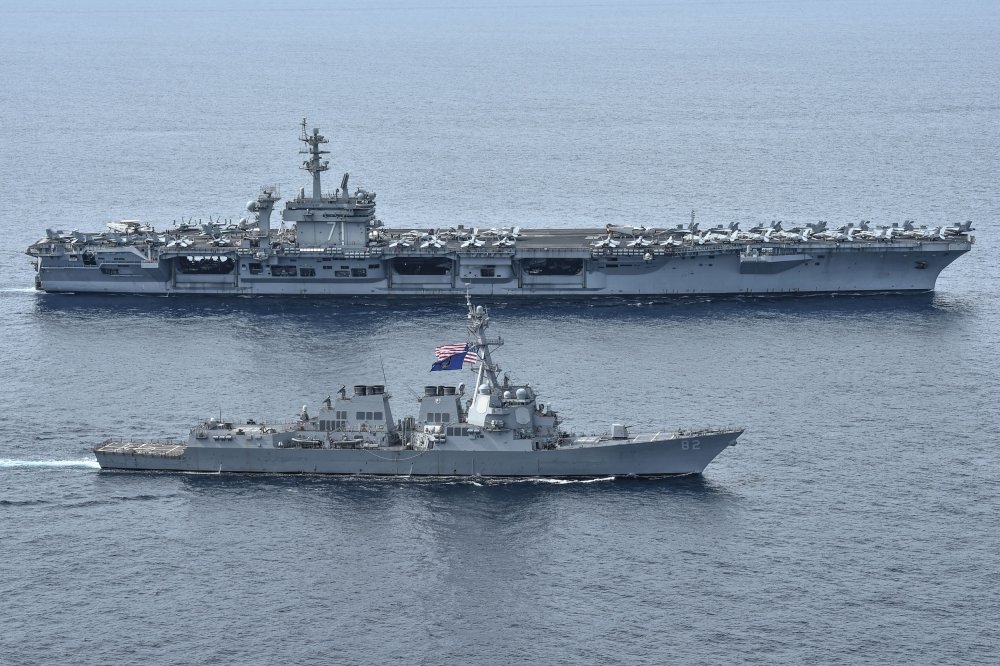
The glow from September’s Obama-Xi summit faded as the USS Lassen made its way through the South China Sea on a Freedom of Navigation (FON) patrol last month. Just as the fifth plenary session of the 18th Communist Party Central Committee kicked off in Beijing, the guided missile destroyer sailed within 12 nautical miles of artificial islands built by China. Beijing warned the U.S. that if it continued to “create tensions in the region,” China might “increase and strengthen the building up of our relevant abilities.” General Secretary Xi stated in September that “China does not intend to pursue militarization” in the South China Sea, but China’s netizens are calling for a military response to the American challenge.
Territorial disputes and the U.S. patrols will undoubtedly be on the agenda when regional leaders meet this month in the Philippines and Malaysia for APEC and the East Asia Summit. Despite the recent cooling of relations between the United States and China, President Obama will head to the Asia-Pacific with confidence. Not only did the “crown jewel” of his rebalance to Asia strategy, the Trans-Pacific Partnership, pass its first major hurdle in October, Obama also concluded successful summits with two major regional partners this month: Park Geun-hye of South Korea and Joko Widodo of Indonesia. These meetings, as well as the high-profile regional meetings in November, underscore the important roles Asian countries other than China play in shaping the future of Asia-Pacific.
Major Issue Tracker
China as an Emerging Superpower
- Xi and the Blue Helmets (October 3): Xi Jinping’s surprise announcement at the UN General Assembly in September that China would provide $100 million to the African Union and 8,000 troops to a permanent peacekeeping force revealed “a sense of direction and even engagement” between China and the United Nations. Something The Economist argues is lacking in China’s relationship with the United States.
- Nobel Laureate Tu Youyou Never Studied Abroad, Never got a Doctorate, and Never Bothered to Climb the Bureaucratic Ladder (October 5): It’s the start of awards season and this year’s Nobel Prize in Medicine was awarded to 84-year-old Chinese pharmacologist Tu Youyou for her discovery of the anti-malarial drug artemisinin. Tu and her team made the discovery during the Cultural Revolution using a 1,600-year old Chinese medicinal text. According to this Foreign Policy piece, Tu is the first Chinese citizen to receive a Nobel prize for research performed in China; the first Chinese woman Nobel laureate; and the recipient of the highest award ever given to research inspired by Chinese traditional medicine. The Guardian also reported on this story.
- China Beats U.S. in Dollar Billionaire Table (October 15): According to the 2015 Hurun Rich List, China is now home to 596 dollar billionaires, overtaking the United States for the first time ever. According to the Financial Times, “Much of this wealth is on paper and comes from vast stakes in companies the billionaires founded.”
- U.S. Takes Stern Line on UK’s Shift to China (October 20): General Secretary Xi Jinping paid a 5-day state visit to the UK last month and American China experts were miffed by the warm reception he received, according to the Financial Times. For more on the impact of warmer Sino-UK ties on U.S.-UK relations, see this Forbes commentary.
- ‘Stop Boasting and Fight’-Nationalist Chinese Netizens are Furious that their Country Didn’t Take Military Action against the U.S. in the South China Sea (October 27): The United States sailed a guided missile destroyer within 12 nautical miles of artificial islands that China has built in the disputed South China Sea. The Chinese were quick to publicly condemn the action but stopped short of militarizing the situation. “After weeks of tough government rhetoric claiming that China would not stand for what it views as a violation of its territorial sovereignty, Chinese social media voices are now mocking what many perceive as a spineless official response”…Read More>>
The American Rebalance to Asia
- Trans-Pacific Partnership Is Reached, but Faces Scrutiny in Congress (October 5): After five years of negotiations, the United States and 11 other Pacific Rim nations reached final agreement on the largest regional trade accord in history, the Trans Pacific Partnership (TPP). Although not directly aimed at China, the deal is viewed as a powerful counterweight to Beijing’s growing influence in the region. “When more than 95 percent of our potential customers live outside our borders, we can’t let countries like China write the rules of the global economy. We should write those rules,” President Obama said in a statement. The New York Times, NPR and Washington Post all reported on this story.
- U.S. Ramps Up Maritime Aid as China Island-Building Tensions Rise (October 9): According to the Wall Street Journal, the United States increased its maritime law enforcement assistance to several Southeast Asian countries four-fold. Countries receiving U.S. funding include Vietnam, the Philippines, Indonesia, and Malaysia, all of which have overlapping territorial claims in the South China Sea with Beijing…Read More>>
- Visit by South Korean President to Washington Highlights Obama’s Foreign Policy Challenges (October 15): South Korean President Park Guen-hye visited Washington last month, capping off a series of high-profile state visits by three of the most powerful leaders in Asia-Pacific. President Park’s increasing engagement with China has raised concerns in Washington, but, according to the Washington Post, “U.S. officials said they are not threatened by Park’s strategy.”
Cyber, Espionage, and Crime
- Chinese Hackers Breached LoopPay, the Company Behind Samsung Pay’s Secret Sauce (October 7): Samsung announced last month that one of its subsidiaries, Massachusetts’s-based startup LoopPay, suffered a computer network breach. LoopPay, which handles the transmission of payment data between the company’s smartphones and merchant’s systems, developed some of the technology behind Samsung Pay, which debuted in the United States last week. The New York Times first reported that LoopPay’s corporate network had been targeted by a state-sponsored Chinese hacking group…Read More>>
- U.S. Targets Chinese Groups in Cyber Feud (October 7): According to the Financial Times U.S. authorities recently named three Chinese state-owned companies that benefited from trade secrets stolen in a Chinese military hack on U.S. companies, thus “heightening” tensions between the two countries over cyber espionage.
Military
- Senior U.S. Navy Officers Visit Chinese Aircraft Carrier (October 21): China hosted a group of senior U.S. Navy officers last month on its sole aircraft carrier, the Liaoning. According to Stars and Stripes, the visit demonstrated that military exchanges between the sides are expanding despite tensions in the Western Pacific and Washington's complaints over what it calls the “Chinese military's lack of transparency.”
- U.S. Warship Sails within 12 miles of Chinese-built Island in South China Sea (October 26): The United States conducted Freedom of Navigation (FON) patrols in the South China Sea last month, sailing within 12 nautical miles of Subi and Mischief Reefs in the Spratly Island chain. The American ships also sailed within 12 nautical miles of features built out by Vietnam and the Philippines. See The Washington Post and Reuters articles for details.
Soft Power
- Q. and A.: Zhang Gan on Managing the Chinese Art Market (October 16): China’s thriving domestic art market has suffered setbacks in recent years due to lax regulations, fraud, and corruption. According to this Sinosphere blog post, China lacks professional art managers but this is about to change with a newly developed two-year master’s degree program in the business of art, a collaboration between Tsinghua University and Sotheby’s (headquartered in New York City).
- China Turns to Online Courses, and Mao, in Pursuit of Soft Power (October 21): China is turning to online education as a tool to promote Chinese culture and values abroad. A course on Mao Zedong Thought debuted last month to an audience of 3,100 students from 125 countries, with more than 700 from the United States. According to The New York Times, these courses “put online education providers in a difficult position, forcing them to strike a balance between preserving academic freedom and maintaining high standards…”
- Zimbabwe’s Robert Mugabe wins China’s Nobel Peace Prize (October 22): A private group based in Hong Kong awarded this year’s Confucius Peace Prize to Zimbabwe’s President, Robert Mugabe. According to The Telegraph, the Confucius Peace Prize was created in 2010 after the Nobel Prize went to Chinese dissident, Liu Xiaobo.
Trade & Economic Relations
- Apple is Ramping up Hiring to Bring Apple Pay to China (October 1): Apple’s mobile-payment system, Apple Pay, is making its way into China. According to Quartz, “Apple’s interest in bringing Apple Pay to China underscores the country’s growing importance to the technology giant.”
- A State-Backed Chinese Tech Company will buy 15% of a Major U.S. Hard Drive Maker (October 1): China is turning to foreign companies for expertise in order to build their homegrown tech-industry. Unisplendour, an arm of Tsinghua Unigroup, has agreed to buy a 15 percent stake in Western Digital, which would make it the largest shareholder of the U.S. hard drive company, reports Bloomberg.
- The Chinese Government Just Issued a Draft Law that Bodes Poorly for Uber (October 12): Last month, Beijing released the first draft of regulations governing ride-hailing apps such as San Francisco-based Uber and local competitor Didi Kuaidi. According to Quartz, “The proposed regulations could make China one of the first countries to address ride-hailing at the national level. They could force Uber and Didi to operate much like traditional taxi dispatchers, which could cause them to significantly alter their business models.”
- Ford Wants to Give Drivers in China a Smarter Car (October 12): Ford Motor Co. announced last month that it will invest $1.8 billion over the next five years on R&D in Nanjing, China. The U.S. automaker said that it wants to research how to bring better “smart” features like smartphone connectivity and autonomous driving to its Chinese products. According to Fortune, “Those improvements will be integrated into its next generation of vehicles for the Chinese consumer.”
- Yum Brands to Separate China Unit Amid Activist Pressure (October 20): Yum Brands Inc., an American fast food company that operates licensed brands such as KFC and Taco Bell, announced last month that it plans to spin off its dominant China business. According to Reuters, the decision came amid pressure from an activist shareholder who recently joined its board of directors. “The move is the latest sign of activist hedge funds’ strengthening grip over Corporate America.”
Academic Relations
- China’s Latest Building Binge: The Education Factory (October 14): Beijing is pouring money into China’s countryside to build vocational education parks. Dubbed “education factories”, these vocational schools will train hundreds of thousands of students in order to redirect China’s economy towards a more innovative, high-tech future…Read More>>
- The Eagle, the Dragon, and the ‘Excellent Sheep’ (October 20): An excellent piece in Foreign Policy on the similarities between U.S. and Chinese college students. “Contrary to popular belief, American students are as terrified of failing as Chinese students, and the American universities that produce them are just as broken as their Chinese counterparts.”
Media
- Universal to Open Theme Park in China (October 14): After 13 years of back room dealing, Universal Studios is spending $3.3 billion to open its first theme park in China. According to the BBC, “film studios are in a big rush to build theme parks in the world's second-largest economy as a rapidly-growing middle class is spending more money on entertainment and travel.” Universal Studios will be the third American theme park to enter the mainland. Disney and DreamWorks will open parks next year in Shanghai.
If You Read/Watched Nothing Else in October...
The fine writing and film/videography on U.S.-China relations published each month far exceeds the assimilating capacity of any institution. It would be ridiculous to feature “the best” efforts of the past 30 days, but KICUS would like to highlight the following work nonetheless:
Blog
What Will the TPP Mean for China? (The Asia Society’s ChinaFile Conversation, October 6-9)
Report
Uneasy Triangle: China, Russia, and the United States in the New Global Order (Center on Global Interests, October 23)
Essays
- The Truth about U.S. Freedom of Navigation Patrols in the South China Sea (Shannon Tiezzi in The Diplomat, September 22). Even though this was first published in September, we thought it was worth highlighting in this month’s newsletter due to the recent U.S. Freedom of Navigation Patrols.
- Why We Need South China Sea Freedom of Navigation Patrols (Sean P. Henseler in The Diplomat, October 6)
- China, Inside and Out: A Collection of Essays on Foreign and Domestic Policy in the Xi Jinping Era (Rand Corporation)
Videos
- The Heart of the Matter: Reassessing the Foundations of U.S.-China Relations (Kissinger Institute, October 7)
- Are the United States and China Long-Term Enemies? (Intelligence Squared, October 19). In a spirited Intelligence Squared U.S. debate, former Australian Prime Minister Kevin Rudd and Kissinger Institute Director Robert Daly faced off with University of Chicago Professor John Mearsheimer and Heritage Foundation Senior Fellow Peter Brookes over this provocative motion: “China and the U.S. are long-term enemies.”
- China’s Sing-Along Video to Explain its Five-Year Plan (CNBC, October 26)
Interview
Francis Fukuyama on the rise of China, East Asia tensions, and the role of the United States (Emmanuel Pastreich for the Asia Institute, October 7)
Survey
Notes from the Ivory Tower: A Survey of America’s top International Relations Scholars on Foreign-Policy Research (Foreign Policy, October 2015). “China’s Rising Military Power” and “China’s Economic Influence” ranked 2nd and 4th on the list of most important foreign policy issue facing the United States in 10 years. China’s military was the 3rd most pressing issue facing the United States today.
Thanks for reading and for your continued support of
The Kissinger Institute on China and the United States.
About the Author

Kissinger Institute on China and the United States
The Kissinger Institute works to ensure that China policy serves American long-term interests and is founded in understanding of historical and cultural factors in bilateral relations and in accurate assessment of the aspirations of China’s government and people. Read more



